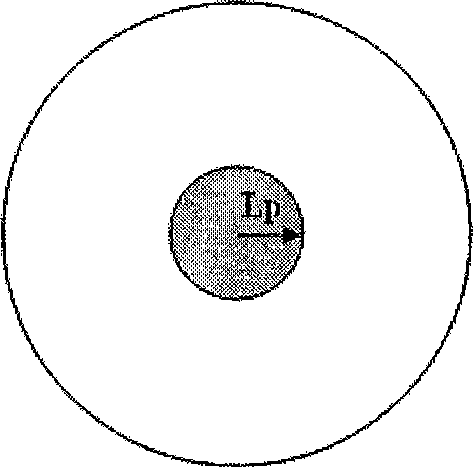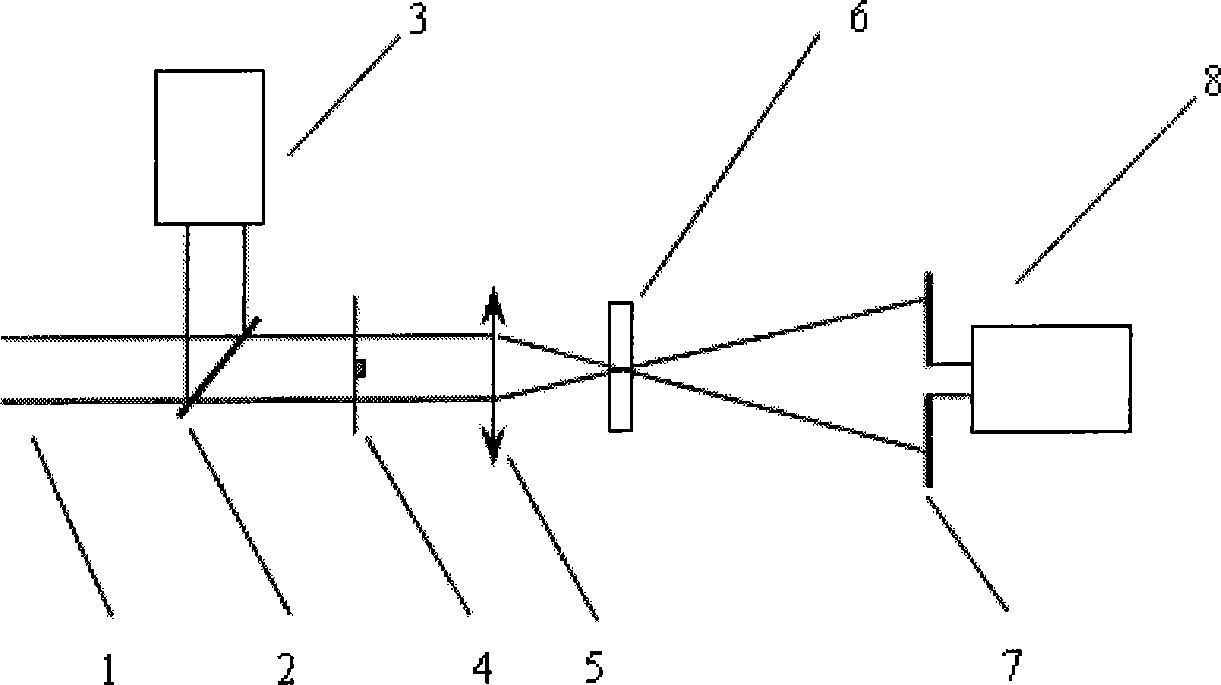Single-pulse measurement method for nonlinear refraction coefficient of materials
A nonlinear, single-pulse technology, applied in the field of optical nonlinear refraction measurement of materials, can solve the problems of increased measurement cost, high CCD requirements, complex processing, etc., to achieve reduced measurement costs, simple optical path requirements, and simple theoretical models Effect
- Summary
- Abstract
- Description
- Claims
- Application Information
AI Technical Summary
Problems solved by technology
Method used
Image
Examples
Embodiment 1
[0025] Embodiment one: see attached figure 2 As shown, a device containing a single pulse of a phase object to measure the nonlinear parameters of a functional material is composed of a beam splitter 2, a phase object 4, a convex lens 5, a small hole 7, a detector 3 and a second detector 8; Pulse 1 is focused on the sample 6 to be tested.
[0026] A beam splitter 2 is used to split the laser pulse 1 into two beams of light. The energy of the monitoring light is received by the detector 3. The other beam of light passes through the phase object 4 and is focused onto the sample 6 by the convex lens 5. The transmitted beam passes through the The small hole 7 is then received by the detector 8 .
[0027] In this embodiment, the laser beam is a 532nm laser after frequency doubling by a Nd:YAG laser (Ekspla, PL2143B), with a pulse width of 21 ps. The two detectors of the model (Rjp-765 energy probe) are connected to the energy meter (Rj-7620 ENERGY RATIOMETER, Laserprobe). The s...
PUM
 Login to View More
Login to View More Abstract
Description
Claims
Application Information
 Login to View More
Login to View More - R&D
- Intellectual Property
- Life Sciences
- Materials
- Tech Scout
- Unparalleled Data Quality
- Higher Quality Content
- 60% Fewer Hallucinations
Browse by: Latest US Patents, China's latest patents, Technical Efficacy Thesaurus, Application Domain, Technology Topic, Popular Technical Reports.
© 2025 PatSnap. All rights reserved.Legal|Privacy policy|Modern Slavery Act Transparency Statement|Sitemap|About US| Contact US: help@patsnap.com



